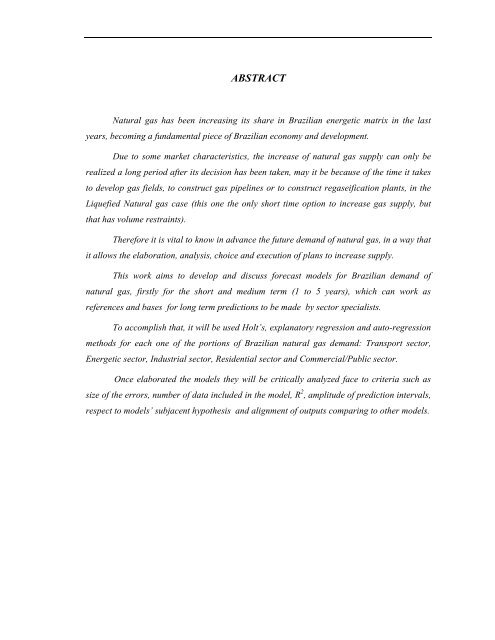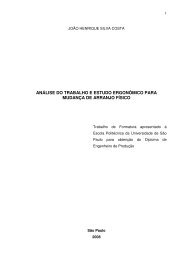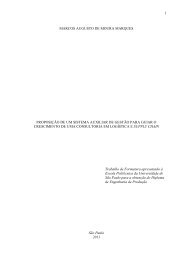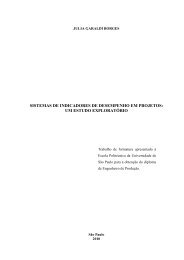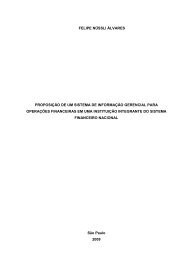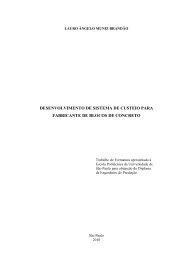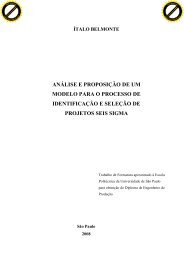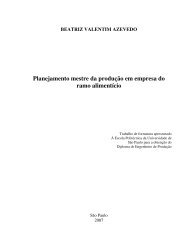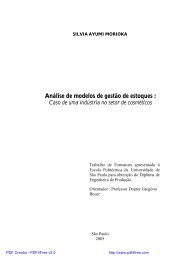GUSTAVO MODENESI MODELO DE PREVISÃO DE ... - PRO - USP
GUSTAVO MODENESI MODELO DE PREVISÃO DE ... - PRO - USP
GUSTAVO MODENESI MODELO DE PREVISÃO DE ... - PRO - USP
Create successful ePaper yourself
Turn your PDF publications into a flip-book with our unique Google optimized e-Paper software.
ABSTRACT<br />
Natural gas has been increasing its share in Brazilian energetic matrix in the last<br />
years, becoming a fundamental piece of Brazilian economy and development.<br />
Due to some market characteristics, the increase of natural gas supply can only be<br />
realized a long period after its decision has been taken, may it be because of the time it takes<br />
to develop gas fields, to construct gas pipelines or to construct regaseification plants, in the<br />
Liquefied Natural gas case (this one the only short time option to increase gas supply, but<br />
that has volume restraints).<br />
Therefore it is vital to know in advance the future demand of natural gas, in a way that<br />
it allows the elaboration, analysis, choice and execution of plans to increase supply.<br />
This work aims to develop and discuss forecast models for Brazilian demand of<br />
natural gas, firstly for the short and medium term (1 to 5 years), which can work as<br />
references and bases for long term predictions to be made by sector specialists.<br />
To accomplish that, it will be used Holt’s, explanatory regression and auto-regression<br />
methods for each one of the portions of Brazilian natural gas demand: Transport sector,<br />
Energetic sector, Industrial sector, Residential sector and Commercial/Public sector.<br />
Once elaborated the models they will be critically analyzed face to criteria such as<br />
size of the errors, number of data included in the model, R 2 , amplitude of prediction intervals,<br />
respect to models’ subjacent hypothesis and alignment of outputs comparing to other models.


